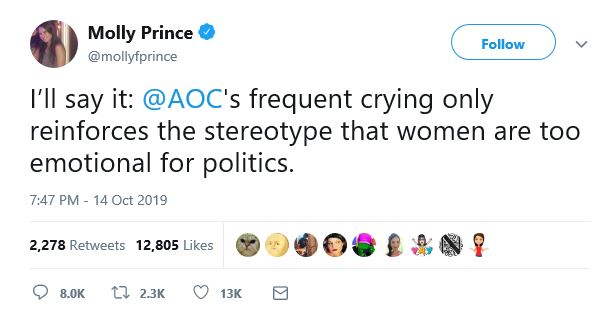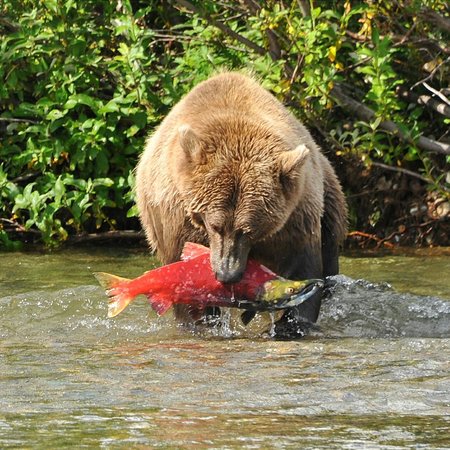Adrienne Attorp is a Sociology and Social Policy PhD student at Newcastle University, studying agriculture policy and land use in Ireland. Here she reflects on the challenge of incorporating emotion in to academic work.
Question: As academics, and, in particular, as sociologists, how acceptable is it for us to be emotional? I don’t mean as individuals, but as professionals.
In general, emotion is a tricky subject. How much emotion is too much? Who gets to show emotion, for what reason, and when? Answers to these questions depend heavily on context.
For example, it seems it is not OK for women in positions of power to show emotion. That is a sign of weakness, evidence of a woman’s inability to hack it in a world of powerful men. Case in point (there are many): This past week, American Congresswoman Alexandria Ocasio-Cortez was called out on Twitter for being ‘too emotional’ following an interview outside a migrant detention centre on the American-Mexican border.

Conversely, it seems it is OK (at least these days, in ‘the West’) for a man in power to show some emotion, or tap into his ‘feminine side’. Canadian Prime Minister Justin Trudeau has political tears down to an art, and Barack Obama also cried more than once during his presidency (e.g. here and here). Both are applauded for it.
However, outside the modern political sphere, it is still not 100% OK for men to be vulnerable, unlike us delicate womenfolk. A quick Google search throws up myriad lists of the sort “when it is OK for a man to cry?” Apparently, there are rules governing this issue. Being emotional is complicated!
So what about emotion in academia? Obviously, to argue a point effectively, academics have to be measured and relatively neutral. The degree to which this is important depends somewhat on an individual academic’s chosen stance. In the context of policymaking, Cairney and Oliver (2018) write that an academic can chose to be an ‘activist scholar’ or an ‘honest broker’, the former being less neutral.
It also depends on discipline. Two of my supervisors are economists and they are clearly taken aback by the amount of ‘emotional’ language sociologists use. But, at the end of the day, even sociologists have to be careful not to get carried away, ‘activist scholar’ or not. We must take pains to present a balanced argument and not appear to be too emotionally involved in our research.
Intellectually, I understand that this is important, and I am not necessarily advocating otherwise. However, two years into this PhD business, I sometimes still struggle to put this into practice. How are we supposed to separate emotion from our work when so much of what we research as sociologists is, well, incredibly emotional? Sociology is about society, about lives. Sometimes those lives are pretty tough. Here at Newcastle University we have people researching everything from refugee experiences to child abuse and homelessness. That ain’t light stuff.
On a personal level, in reflecting on why I am here, in academia, it comes down to one basic fact: I am angry. Furious actually. The social challenges and ecological breakdown we are currently experiencing – the result of a whole host of interconnected political, social and economic factors – fill me with rage and frustration. I know that we, as a species, have the potential to be so much better.
On bad days, anger takes a break and grief and fear pay a visit. For example, last week I was sent into a bit of a tailspin by news that British Columbia’s once vast salmon run has all but failed to return this year. Although various pressures can be blamed for the decline of this great fish, something that has been happening for a while now, climate breakdown looks to be the main culprit: hotter, drier summers are causing many smaller spawning streams to dry up, and it also appears the salmon are not coping well with warmer coastal waters.
Salmon are the lifeblood of coastal British Columbia, where I grew up. They are a critical part of the regional food chain: a staple food for indigenous peoples who have lived in the region for thousands of years, as well as for everything from otters and orcas to the towering coastal trees (bears feed on spawning fish and leave the remains of their meal on the forest floor, thereby fertilising the trees. I find this incredible). Salmon’s precipitous decline is already having disastrous knock-on effects for all other life that relies upon them. The fishing industry was also historically a huge employer of British Columbians; the industry’s collapse has hit coastal towns hard.
The loss of the salmon is just one of the many cascading changes already being written on the land I love as a result of climate breakdown. This sometimes makes me feel overwhelmed, and yes, pretty damn sad.
(I hope we can leave aside, for now, discussion of the fact that I am clearly in an incredibly privileged position if it is salmon I am crying over. I can hear you saying: “Turkish forces are using British weapons to bomb Syrian Kurds into oblivion as we speak. People are already losing their homes because of climate breakdown, and in many cases, instead of finding safe refuge elsewhere, they are being kept in deplorable refugee camps not fit for any lifeform. And you are worried about a few fish?!”. I take your point, but that is a discussion for another blog.)
What does all this have to do with emotion and academia? Indeed, what does this have to do with my current research, which is mainly about agriculture politics and cow poo, not salmon or climate change? Well, I have chosen to focus my work on agriculture because so many of the challenges we face – social, political, ecological – converge in the food system. Modern food production is one of the biggest contributors to climate change and ecological destruction globally, and some of the poorest people in the world work in the agriculture sector, often under grossly unfair conditions.
I am under no illusion that by doing a bit of research on agriculture policy I will fix the food system or stop climate change. However, I have spent quite a few years trying to figure out how to use my anger and grief constructively, and, for the time being, this PhD is fitting the bill. I have convinced myself that trying to make change, however small, is better than making no change at all. Geographer Susanne Moser refers to this as grounded hope.
The question then is: how do I channel my rage, my grief, my fear and frustration into something that is powerful and effective in an academic setting?
Many of the people who inspire me most are writers. When I doubt why I even bother, passionate essays about social and political change by the likes of poet Adrienne Rich, writer and playwright James Baldwin, and modern climate justice advocate Mary Annaïse Heglar can often snap me out of whatever funk I have fallen into.
James Baldwin said “You write in order to change the world”. He argued, “The world changes according to the way people see it, and if you alter, even by a millimeter, the way a person looks or people look at reality, then you can change it.”
As Sociologists, we are not writers, we are academics. But academics write, and many of us, social scientists in particular, are in this game to try and make things better. If we cannot effectively convey in our writing the emotions we feel, are we actually able to effect change?
Author and activist Naomi Klein is vocal about the need to be more emotional about issues such as climate change. She speaks about how she – particularly as a woman – has been trained to speak in a calm and measured fashion when communicating lest she not be taken seriously. However, she says this causes a disconnect between the message that she is conveying – the causes and consequences of climate breakdown – and her affect. She argues that in order for people to take the emergency we are facing seriously and treat it as one, those of us communicating about it need to, at least on some level, show how emotional we are about it.
Academic writing is not about persuasive essays, nor is it public speaking. I accept that a sound academic argument cannot be as emotional as a James Baldwin essay or the column of a talented journalist. But if academic writing is to be the main form of communicating my work, how do I convey my emotion? How do I encourage change rather than restrict myself to analysing problems in a clinical manner and identifying possible solutions? Perhaps a sideline in blog writing (haha) or public speaking is the way forward. However, if I do write emotional blogs, or give emotional speeches, will I lose all hope of ever being regarded as a serious academic? Can emotion and academic credibility co-exist?
As I write these questions, plenty of passionate scholars pop to mind. I guess the answer is yes: academic writing is just one of several tools that will allow me to convey my message. Nevertheless, I remain mindful that activism comes with its own set of risks, especially for women who hope to have their research taken seriously. I am going to have to figure out how to get the balance right.
Cairney, P., & Oliver, K. (2018). How Should Academics Engage in Policymaking to Achieve Impact? Political Studies Review. https://doi.org/10.1177/1478929918807714

